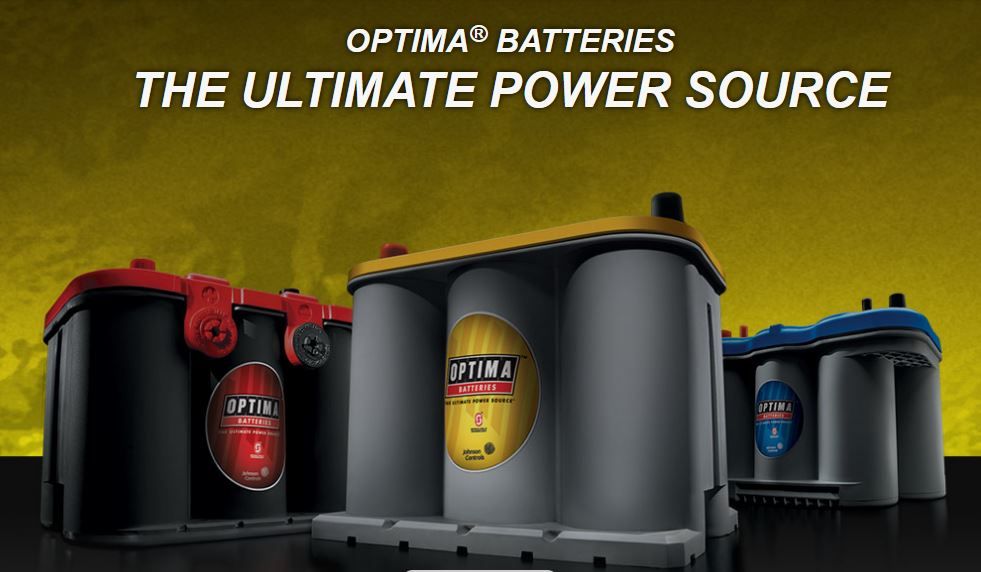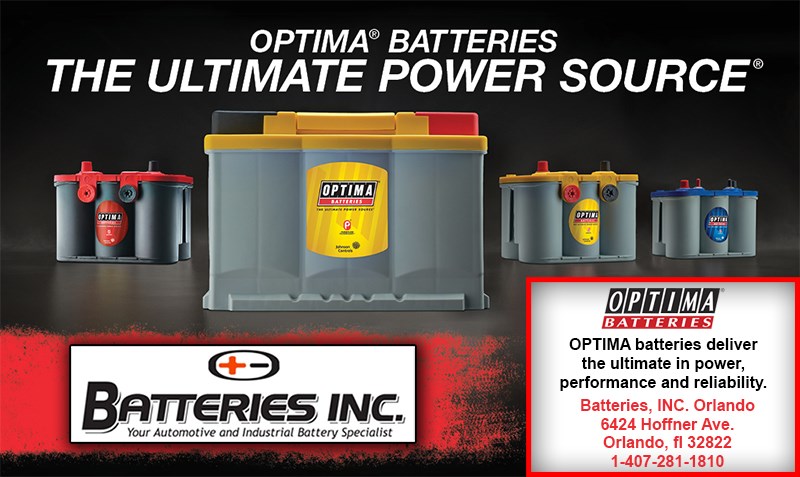Golf Cart Batteries: Choosing the Right Option for Florida’s Climate
Get the Right Golf Cart Battery for Florida’s Heat
Golf carts are everywhere in Florida. From neighborhoods and golf courses to marinas and retirement communities, these small but powerful vehicles keep life moving. Yet, one part of a golf cart often gets overlooked until it fails — the battery. Florida’s climate is tough on batteries. The combination of year-round heat, humidity, and seasonal storms means choosing the right battery is critical for performance and reliability.
This guide will help you understand what matters most when buying golf cart batteries in Florida. We’ll cover battery types, performance ratings, lifespan, and the unique challenges of the Florida climate. By the end, you’ll know how to make the best choice for your cart and avoid costly mistakes.
Why Florida’s Climate Is Hard on Golf Cart Batteries
Heat is the biggest enemy of batteries. In Florida, summer heat can stay above 90°F for weeks. High temperatures increase internal chemical reactions inside a battery. That leads to faster water loss, quicker corrosion, and shorter lifespan. Even if your golf cart is parked, the heat still works against the battery.
Humidity also matters. Salt air in coastal areas speeds up corrosion. Rainy seasons bring extra moisture and sudden flooding. All of these factors put golf cart batteries under heavy stress. That’s why choosing the right battery — and caring for it — is more important in Florida than in many other states.
Types of Golf Cart Batteries
Not all batteries are the same. Golf cart owners in Florida have a few main options. Each comes with pros, cons, and price differences.
Flooded Lead-Acid Batteries
These are the most common type of golf cart batteries. They’re affordable and widely available. But they require regular maintenance. You must check water levels, clean terminals, and prevent corrosion. In Florida’s heat, water evaporates faster, so maintenance is even more important.
AGM (Absorbed Glass Mat) Batteries
AGM batteries are sealed. They don’t require watering like traditional lead-acid batteries. They handle vibration better and are less likely to leak. In hot, humid climates, AGMs are more reliable and easier to maintain. The trade-off is a higher price than flooded batteries.
Lithium Golf Cart Batteries
Lithium is the newest and most advanced option. These batteries are lighter, charge faster, and last much longer. A lithium pack can last 8–10 years compared to 3–5 years for lead-acid. They also perform better in high heat and during deep cycles. Upfront cost is higher, but many Florida cart owners find lithium the best long-term value.
Understanding Battery Voltage and Capacity
Most golf carts run on 36-volt or 48-volt systems. Some custom carts use 72-volt for extra speed. Always match the system voltage specified by your cart. Using the wrong setup can damage the motor or controller.
Capacity is measured in amp-hours (Ah). Higher Ah means longer runtime between charges. If you drive daily or take long community routes, a higher-capacity battery is worth it.
Deep Cycle Batteries Are Essential
A golf cart battery isn’t a car battery. Cars need a quick burst of power to start. Golf carts need steady power for longer periods. That’s why carts require deep-cycle batteries. They are designed for repeated charge/discharge cycles without losing strength. In Florida, where carts see frequent use, deep-cycle reliability is a must.
How Long Do Golf Cart Batteries Last in Florida?
In ideal conditions, lead-acid batteries last 4–6 years. In Florida heat, many last 3–5 years. Lithium batteries commonly reach 8–10 years, even with regular use. Actual life depends on care, charging habits, and storage conditions.
Maintenance Tips for Florida Golf Cart Owners
- Charge regularly: Don’t let batteries sit empty. Recharge after use.
- Keep them clean: Remove corrosion and apply terminal protectant.
- Check water levels: For flooded lead-acid, top off with distilled water as needed.
- Store in shade: Avoid direct sun when parked for long hours.
- Inspect often: Watch for swelling, leaks, or cracks.
Lithium vs. Lead-Acid: Which Is Best for Florida?
Lead-acid is cheaper upfront. Lithium lasts longer and saves money over time. Lithium handles Florida heat, deeper cycles, and frequent use better. For golf courses, HOAs, retirement communities, and daily drivers, lithium is quickly becoming the preferred choice. If you’re on a tight budget and don’t mind maintenance, lead-acid still works well.
Common Mistakes to Avoid
- Buying undersized batteries to save money — they wear out faster.
- Mixing old and new batteries in the same pack — replace sets together.
- Waiting for a full discharge — partial charges extend life.
- Parking in direct sun — heat damage builds quickly in Florida.
Recycling Golf Cart Batteries
Golf cart batteries are highly recyclable. Over 95% of lead-acid batteries are recycled. Bring your old batteries when you buy new ones so they can be handled properly. Recycling reduces waste, protects the environment, and helps keep costs in check for new products.
Where to Buy Golf Cart Batteries in Orlando
Local expertise matters. Choose a shop that understands Florida’s climate and your use case. You want the right chemistry, capacity, and warranty for your needs, plus proper recycling for the old pack.
Key Takeaways
Florida’s climate is tough on batteries. Heat and humidity shorten lifespan. The right choice comes down to how you use your cart, your maintenance preference, and budget. Lead-acid is affordable. AGM reduces maintenance. Lithium delivers the best performance and long-term value.
Whatever you choose, charging discipline, cleanliness, and avoiding heat will extend life. When it’s time to replace, work with a local expert who knows Florida conditions and proper recycling.
Get a Battery That Lasts in Florida
Ready for an upgrade or replacement? Talk to a local expert who can match the right battery to your cart and your routine — and recycle the old one responsibly.
Optima Batteries: Investing in Excellence and Longevity
When it comes to batteries, reliability and performance are key factors to consider. In the realm of Absorbed Glass Mat (AGM) batteries, Optima has been a trusted name for over four decades. With their commitment to innovation and cutting-edge technology, Optima Batteries have garnered a reputation as some of the most reliable and technically advanced batteries on the market. In this analysis, we will delve into the history of Optima Batteries, explore their manufacturing process, highlight the benefits they offer, and ultimately determine if they are worth the investment.
The History of Optima Batteries

Optima Batteries has a rich history that spans over 40 years. They were the pioneers in introducing maintenance-free lead-acid batteries for the US Military, solidifying their position as industry leaders. Since then, Optima Batteries have become the preferred choice for enthusiasts worldwide. Their product range includes starting batteries for cars, trucks, boats, and RVs, as well as deep-cycle batteries for marine and RV applications.
Manufacturing Excellence
One aspect that sets Optima Batteries apart is their unwavering commitment to manufacturing excellence. Their manufacturing plant, located in Monterrey, Mexico, is dedicated solely to the production of Optima batteries. This singular focus allows the Optima team to channel all their time, energy, and resources into research, development, and manufacturing. The result is a battery that surpasses industry standards and delivers exceptional performance.
Benefits of Optima Batteries
Optima Batteries boast several key benefits that make them stand out from the competition:
- Patented SPIRALCELL TECHNOLOGY®: Optima Batteries utilize this innovative technology, which involves tightly coiling two 99.9% pure virgin lead plates. This design provides significantly more power compared to traditional flat plate AGM batteries. The distinctive “6-Pack” design of Optima batteries is a testament to their superior performance.
- Dual-Purpose Capability: The Optima YELLOWTOP battery incorporates PUREFLOW TECHNOLOGY®, making it one of the few batteries on the market that excels in both automotive and high-demand electrical applications. It is particularly well-suited for modern vehicles with extensive electrical requirements.
- Cranking Power: Optima REDTOP batteries are renowned for their exceptional cranking characteristics. These batteries outshine other AGM batteries in the market, offering superior starting power for various applications.
- Marine Solutions: Optima BLUETOP Marine batteries come in two variants to address all marine battery needs. The dedicated marine starting battery boasts high cranking capabilities, while the dual-purpose option combines deep-cycle capabilities with impressive cranking power. Both variants provide reliable performance on the water.
- Extended Lifespan: Optima batteries have a lifespan that is three times longer than traditional lead-acid batteries. With proper care and maintenance, most Optima AGM batteries can last for five years or more, depending on usage and application.
- Extreme Environment Performance: Optima batteries excel in extreme environments, thanks to their ability to withstand a wide range of operating temperatures. Whether it’s scorching heat or freezing cold, these batteries deliver reliable power.
- Maintenance-Free: Optima batteries are completely sealed, non-spillable, and maintenance-free. This feature adds convenience and peace of mind for users, as they can focus on enjoying their vehicles without the hassle of battery maintenance.
- Versatile Mounting Options: Optima batteries offer endless mounting possibilities for custom applications. While they can be mounted in various positions, it’s important to note that upside-down mounting is not recommended.
- Warranty: Optima Batteries come with generous warranties to ensure customer satisfaction. YELLOWTOP and REDTOP batteries are backed by 36-month warranties (24
for commercial use), while BLUETOP batteries carry a 24-month warranty (12 for commercial use). These warranties reflect the confidence Optima has in the longevity and reliability of their batteries.
Are Optima Batteries Worth It?
After considering the history, manufacturing process, and benefits of Optima Batteries, the question remains: Are they worth the investment? The answer lies in the specific needs and preferences of the consumer.
For enthusiasts seeking top-of-the-line battery solutions for their high-performance vehicles, Optima Batteries are a clear choice. The advanced SPIRALCELL TECHNOLOGY®, combined with their dual-purpose capability and exceptional cranking power, ensures optimal performance and reliability in demanding automotive applications. Whether you have a modern car with extensive electrical demands or a classic vehicle in need of a reliable starting battery, Optima Batteries deliver the power you need.
Furthermore, for marine enthusiasts and RV owners, Optima offers specialized batteries designed to withstand the challenges of marine environments. The BLUETOP Marine batteries, with their high cranking capabilities and deep-cycle capabilities, provide a comprehensive solution for both starting and auxiliary power needs on the water.
Another significant advantage of Optima Batteries is their extended lifespan. With proper care and maintenance, these batteries can last significantly longer than traditional lead-acid batteries, providing excellent value for money in the long run. Moreover, their ability to perform well in extreme temperatures and their maintenance-free design make them a convenient and reliable choice for a wide range of applications.
It’s worth noting that while Optima Batteries may have a higher upfront cost compared to some alternatives, their superior performance and longevity justify the investment. The peace of mind and the reduced need for frequent battery replacements offset the initial expenditure.
In conclusion, Optima Batteries have a well-established reputation for being reliable, technologically advanced, and durable. They have consistently proven their worth in various applications, from automotive to marine and RV use. If you are looking for a high-performance battery solution that delivers exceptional power, longevity, and reliability, Optima Batteries are a worthwhile investment.
Upgrade Your Power Source with Optima Batteries

When it comes to powering your vehicles, RV’s, or project cars, settling for mediocrity is not an option. Optima Batteries at Batteries Inc Orlando have consistently set the benchmark for excellence in the battery industry. With their innovative technology, manufacturing expertise, and impressive range of benefits, Optima Batteries continue to be the ultimate power source for discerning customers. So, if you’re ready to take your vehicle or recreational vehicle to the next level, look no further than Optima Batteries. Experience the power, reliability, and performance that Optima Batteries bring to the table and elevate your driving or boating experience.
